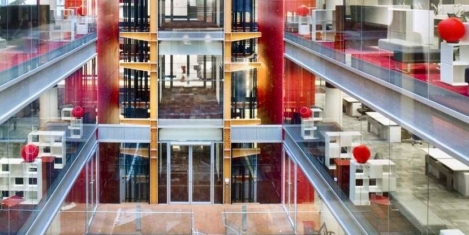June 28, 2017
UK lags behind in employee satisfaction and happiness levels 0
 The UK has one of the lowest levels of staff satisfaction, being ranked sixth in an international study of employee happiness. This is according to research by Robert Half; It’s Time We All Work Happy: The Secrets of the Happiest Companies and Employees. For the study, Robert Half worked with leading happiness and well-being expert Nic Marks of Happiness Works, whose team evaluated the levels of employee happiness among more than 23,000 working professionals across Europe, North America and Australia. The report shows the United States, Germany and the Netherlands have the happiest employees among the countries included in the research, ranking 71.8, 71.2 and 69.9, respectively, on a scale of 0-100, with 100 being the happiest. The countries studied with the lowest levels of employee happiness are France (63.8), Belgium (65.2) and the United Kingdom (67.2). The research also shows that the top drivers of employee happiness vary by country. In the United States, UK and Canada, the highest-ranking factors are having pride in one’s organisation, feeling appreciated and being treated with fairness and respect. In France, Belgium, Germany and Australia, being treated with fairness and respect is the top happiness factor. In the Netherlands, a sense of accomplishment is the most important driver of happiness.
The UK has one of the lowest levels of staff satisfaction, being ranked sixth in an international study of employee happiness. This is according to research by Robert Half; It’s Time We All Work Happy: The Secrets of the Happiest Companies and Employees. For the study, Robert Half worked with leading happiness and well-being expert Nic Marks of Happiness Works, whose team evaluated the levels of employee happiness among more than 23,000 working professionals across Europe, North America and Australia. The report shows the United States, Germany and the Netherlands have the happiest employees among the countries included in the research, ranking 71.8, 71.2 and 69.9, respectively, on a scale of 0-100, with 100 being the happiest. The countries studied with the lowest levels of employee happiness are France (63.8), Belgium (65.2) and the United Kingdom (67.2). The research also shows that the top drivers of employee happiness vary by country. In the United States, UK and Canada, the highest-ranking factors are having pride in one’s organisation, feeling appreciated and being treated with fairness and respect. In France, Belgium, Germany and Australia, being treated with fairness and respect is the top happiness factor. In the Netherlands, a sense of accomplishment is the most important driver of happiness.



















 Most FMs would tell you that the state of the workplace toilets is often one of the main determinants by occupants on how well the facilities department is doing its job. So it’s disturbing to learn that according to a new survey a significant number of employees have cause to complain about the state of their workplace toilet facilities. The research, carried out by the Association of Plumbing & Heating Contractors claims that 16.5 percent of people are unhappy at work due to the condition of their employer’s toilets which is having a negative impact on their levels of engagement. Their research found 43.8 percent of the people surveyed felt their workplace toilets needed to be better maintained. And when asked if their workplace toilets require updating or refurbishing, 44.4 percent said they did. London seemingly has the worst workplace toilets with 50.9 percent of workers surveyed believing they need to be better maintained and require refurbishing.
Most FMs would tell you that the state of the workplace toilets is often one of the main determinants by occupants on how well the facilities department is doing its job. So it’s disturbing to learn that according to a new survey a significant number of employees have cause to complain about the state of their workplace toilet facilities. The research, carried out by the Association of Plumbing & Heating Contractors claims that 16.5 percent of people are unhappy at work due to the condition of their employer’s toilets which is having a negative impact on their levels of engagement. Their research found 43.8 percent of the people surveyed felt their workplace toilets needed to be better maintained. And when asked if their workplace toilets require updating or refurbishing, 44.4 percent said they did. London seemingly has the worst workplace toilets with 50.9 percent of workers surveyed believing they need to be better maintained and require refurbishing.

















June 14, 2017
Workplace wellbeing is now embedded in the very bricks and mortar of the building 0
by Sion Davies • Comment, Wellbeing, Workplace design
More →